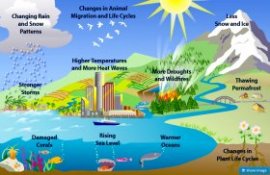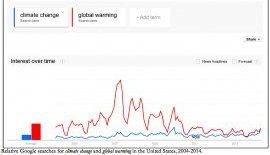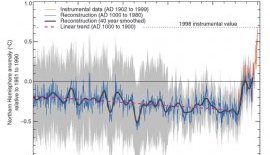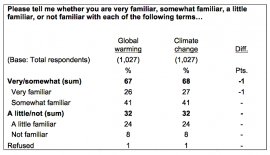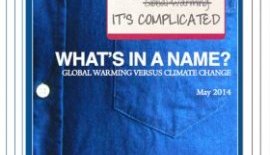About climate change and global warming
“I see them as different attributes of the same phenomenon. ‘Global warming’ simply describes the surface warming of Earth due to increased greenhouse gas concentrations. ‘Climate change’ describes the fuller range of impacts (i.e., shifting rainfall and drought patterns, changes in ocean circulation, melting ice, sea level rise, etc.). But as for the ‘hockey stick, ’ since it is indeed an estimate of surface temperature alone, ‘global warming’ seems the more appropriate characterization.”
So the actual scientific difference between the terms is causal. Other experts and observers bear this out. Because it refers to the overall pattern, “climate change” is more inclusive. It encompasses all the effects Dr.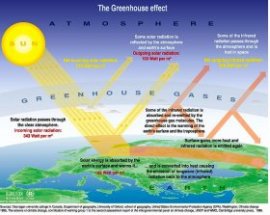 Mann describes beyond simple temperature rise, and more. The “greenhouse effect”is at the root of both.
Mann describes beyond simple temperature rise, and more. The “greenhouse effect”is at the root of both.
Now for the really complex question: how do ordinary people describe the phenomenon? Here the correct answer has to be “it’s complicated.” The words appear to mean different things to different subpopulations (sex, age, political party, etc.). Worse yet, many surveys have asked these questions, and the answers are regrettably inconsistent.
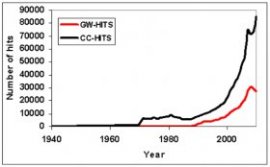 If we examine the specific use of these terms as several sources present them, neither turns up early. “Climatic change” appears to have been the first descriptor. Our sources find it used by Plass (1956), Benton (1970), and Broecker (1975), among others. In Congressional hearings in 1975, however, testimony referred to “global warming.” The Charney report of 1979 used both, and correctly. For a while, NASA called the phenomenon “inadvertent climate modification.”
If we examine the specific use of these terms as several sources present them, neither turns up early. “Climatic change” appears to have been the first descriptor. Our sources find it used by Plass (1956), Benton (1970), and Broecker (1975), among others. In Congressional hearings in 1975, however, testimony referred to “global warming.” The Charney report of 1979 used both, and correctly. For a while, NASA called the phenomenon “inadvertent climate modification.”
 In 1988, Jim Hansen, the first climate scientist to testify before Congress on the subject, talked about “global warming.”
In 1988, Jim Hansen, the first climate scientist to testify before Congress on the subject, talked about “global warming.”
“Global warming has reached a level such that we can ascribe with a high degree of confidence a cause and effect relationship between the greenhouse effect and the observed warming.”
But also that year, the World Meteorological Organization and United Nations Environment Programme founded an Intergovernmental Panel on Climate Change. Shortly thereafter a series of annual international meetings arose called United Nations Framework Conventions on Climate Change.


